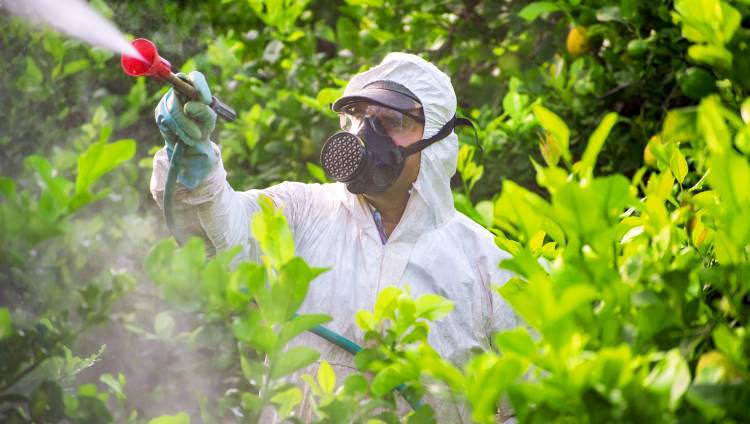UK Exports Toxic Pesticides Banned from Use in EU

Loopholes in international trade rules are being used by the UK to export toxic pesticides to countries with less strict regulations.
According to documents obtained by environmental campaigners, two companies, Syngenta and Ineos, are exporting large amounts of pesticides which contain chemicals that are banned for use within the EU.
The documents, obtained in freedom of information requisitions by Greenpeace UK’s Unearthed investigation and the Swiss NGO Public Eye, showed that 28,000 tonnes of a particular pesticide was planned for shipment by Syngenta.
The pesticide contained paraquat, which can cause lung, eye, heart, and kidney damage through long-term exposure, and is fatal when ingested in small doses. Paraquat was banned from use within the UK in 2007.
A subsidiary of Ineos, Inovyn, made export notifications for 4000 tonnes worth of 1,3-dichloropropene. The chemical is a soil fumigant suspected of having carcinogenic effects.
Exporting these chemicals is legal, however, given how their use is prohibited within the EU, campaigners want the practice of exporting them banned too due to the harm they could cause in other countries
Greenpeace UK’s chief scientist, Doug Parr, called the export of these pesticides ‘exploitative hypocrisy’.
“The UK is at the heart of a European pesticide scandal that allows chemical giants to flood other countries – many of them poorer nations – with toxic chemicals on a major scale,” said Parr.
“These pesticides are so dangerous that we’ve made the very sensible decision to ban their use in our own country and across Europe. What gives us the right to think it is morally defensible to continue producing and shipping them around the world?”
A Syngenta spokesperson said: “We comply with the rule of law wherever we operate.
“The crop protection industry is one of the most highly regulated in the world, with products subject to extensive evaluation before they are approved for registration and sale. To be exported and sold, any finished product needs to comply with the specific regulatory requirements of the importing countries.”
A Department for Environment, Food and Rural Affairs spokesperson said: “Decisions on the use of pesticides are based on careful scientific assessment of the risks, and this will not change after the [Brexit] transition period. We will continue to ensure our high human health and environmental standards are maintained as we implement our own independent pesticides regulatory regime. Chemicals currently banned will not become eligible for use in Great Britain.”
Read on our blog

With the government poised to implement tough new measures to...

Budget broadband provider TalkTalk has been notifying customers via email...

A year-long investigation by charity Citizens Advice has revealed a...

Education Secretary Nadhim Zahawi has announced a new commitment to...
